Meet Tyler Hanson, a data analytics adviser and seasoned engineer with a decade of experience in the tech industry. Having led data teams and built data infrastructure from scratch for numerous startups, Tyler brings a wealth of knowledge and a proven track record to TCW Strategies. His private sector experience equips him with a unique perspective and skill set, enabling him to deliver innovative, impactful solutions tailored to the needs of unions and progressive organizations. We spoke with Tyler about his work with TCW Strategies and helping clients harness the power of their data to drive their missions forward.
Tyler, how do your technical skills and experience contribute to client success at TCW Strategies?
Over the past 10 years, I have worked in various data roles and accumulated the experience to handle all tech and data-related aspects of a client partnership, which encompasses data science, engineering, and analytics. Within the industry, it’s called a “full-stack” data scientist and developer. I leverage my experience to develop and implement top-down solutions tailored to a client’s needs. My role is to integrate all the technical components of their solution and ensure we achieve their goals effectively.
From your perspective, what unique challenges does TCW Strategies address for progressive organizations that set it apart in the data services industry?
I think where TCW Strategies stands apart is our engagement with purpose-driven progressive organizations, which often face significant technical challenges due to their high level of organizational complexity and low level of technical maturity. Tackling these issues and committing to producing effective solutions is a complex task, unlike working with companies that already have advanced tech in place.
Our work also goes beyond just data analytics. We help implement various types of CRMs and operational systems—the context in which the data exists and is being generated so it can be useful. This adds a new dimension to our services and makes our solutions even more valuable to our clients.
It’s incredibly gratifying to see our clients become more excited and engaged as their jobs become easier and more fulfilling. This transformation not only boosts their efficiency but also expands what’s possible.
What inspires you most about working with TCW Strategies and enhancing data capacity for unions and progressive organizations?
The most exciting thing about working with TCW Strategies is the immense potential to drive meaningful change. The challenge of low technical maturity in unions and progressive organizations also presents a huge opportunity to improve and make a real impact. By enhancing their data capacity and implementing better tech solutions, we can significantly improve the lives of people working in these organizations. They often struggle and spend substantial time compensating for a lack of tech and data, which hinders their ability to focus on solving critical problems. Our work frees up their time, allowing them to tackle the issues they truly need to address. It’s incredibly gratifying to see our clients become more excited and engaged as their jobs become easier and more fulfilling. This transformation not only boosts their efficiency but also expands what’s possible.
In what ways do you expect that transformation to impact the greater labor movement?
Initially, there is often a lot of excitement around targeting and predictive modeling, but the biggest impact we see is simply increased visibility and accessibility of data. By ensuring data is clean, accessible, and governed, more people within these movements can utilize it effectively. Legacy systems often make data inaccessible, inconsistent, and difficult to understand. By opening up granular contact-level data and metrics, we empower everyone in the organization, regardless of technical ability, to use the data, making a substantial difference in movement building.
What is your process for helping clients transition from their current data systems to more efficient, data-informed strategies?
When I work with a client, my role begins with understanding the client’s current data environment. We assess the data they’re generating and the systems they have in place to map out their position and determine how to get from point A to point B. It’s essential to understand each client’s specific context and pain points, especially since many clients have been using legacy tools for so long that they’ve accepted their limitations as the norm.
Ultimately, our goal is to integrate data more seamlessly into their operations, making it a part of their regular workflow. We start by demonstrating how new tools can save time and improve their daily tasks. Then, by promoting more visibility and democratization of data, we help our clients use data to inform their broader strategies and decisions more effectively.
Considering your extensive background in data and data analytics in the private sector, let’s talk about the importance for unions and progressive organizations to adopt tools used by corporations. Why do you believe this is crucial now, and what are the key advantages?
Data tooling has evolved significantly in the last 5–10 years, making it easier than ever for small organizations to access best-in-class data solutions. The costs are low, and the barriers to time and technical resources have decreased. This wasn’t always the case. Data tools used to be clunkier and more challenging to implement.
Today, there’s a tremendous opportunity for organizations to catch up without needing to invest heavily in staffing or maintaining complex tools to achieve a data setup as sophisticated as that of a corporate company. The internal advantages include increased visibility and democratization, making it easier for staff to use data in their daily tasks. What is meant by democratization is having a single source of truth where all data is accessible and consistent, preventing miscommunication and ensuring everyone is on the same page.
Externally, increased data visibility leads to better decision-making. Clear data on team activities allows organizations to see and understand their actions, enabling strategic adjustments based on concrete insights. For operators dealing with granular data, seeing the results of their work enhances their understanding and engagement, fostering a bottom-up strategy where everyone can see the impact of their efforts.
In the private sector, accessible data ensures that more people pay attention to key performance indicators and analytics, breaking down silos and facilitating better communication and strategy alignment. This approach is equally beneficial for progressive organizations and labor unions, providing them with the tools to make informed decisions and drive their missions forward.
What changes are you noticing in how organizations are leveraging data, and how is TCW Strategies contributing to these advancements?
There’s an ongoing need to enhance discipline around metrics. Rather than focusing on trends, which can be distracting, there needs to be an emphasis on the fundamentals of defining metrics, outcomes, and goals while maintaining clean data. At TCW Strategies, we iterate on this by helping clients identify their goals, measure success, and align their teams around these objectives. This helps organizations understand the point of their teams and how data contributes to their measurable outcomes.
Often, organizations haven’t thought in terms of measurable results, or they have goals that seem difficult to quantify, like political power or communication effectiveness. We’re getting smarter about defining and aligning key metrics, and this is especially crucial for unions and progressive organizations. First figuring out the things that matter most, then gathering and accessing the right data to measure what matters most, and finally using that information to improve outcomes.
For fun: What do you enjoy doing when you’re not dealing with data?
Since moving to Berkeley, California, with my wife, who works at the university, I’ve been making the most of our time here by enjoying the beautiful weather and the great outdoors. You could say I offset the cost of housing by making sure I get my money’s worth exploring everything California has to offer! I also love traveling whenever I get the chance.
Put Our Expert Team to Work for You
Connect with us today to see how our team of dedicated professionals, like Tyler, can help solve data headaches and drive your mission forward.


